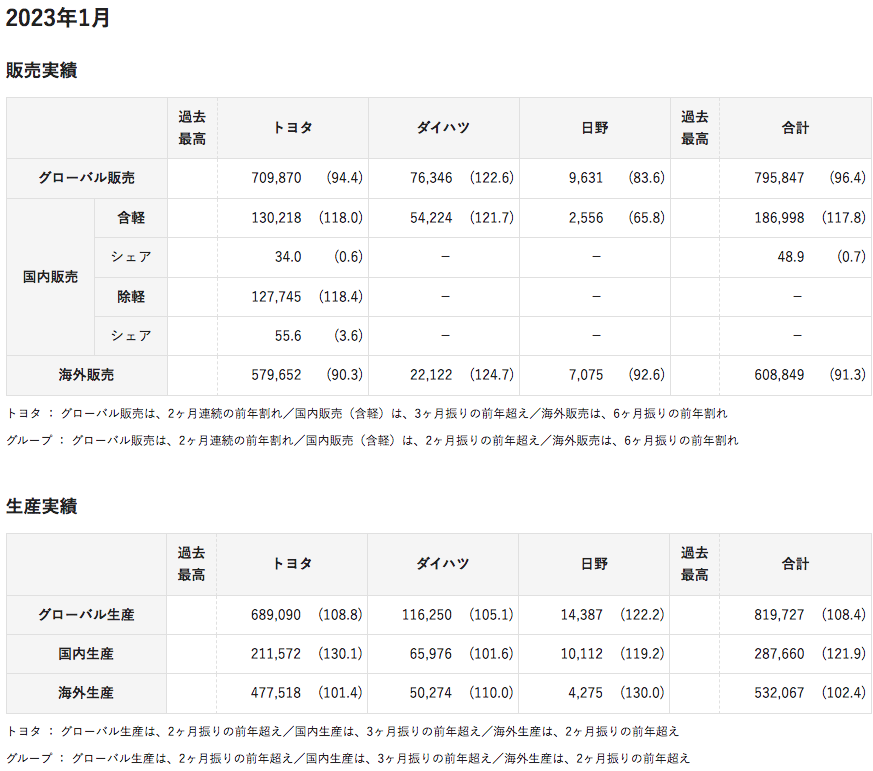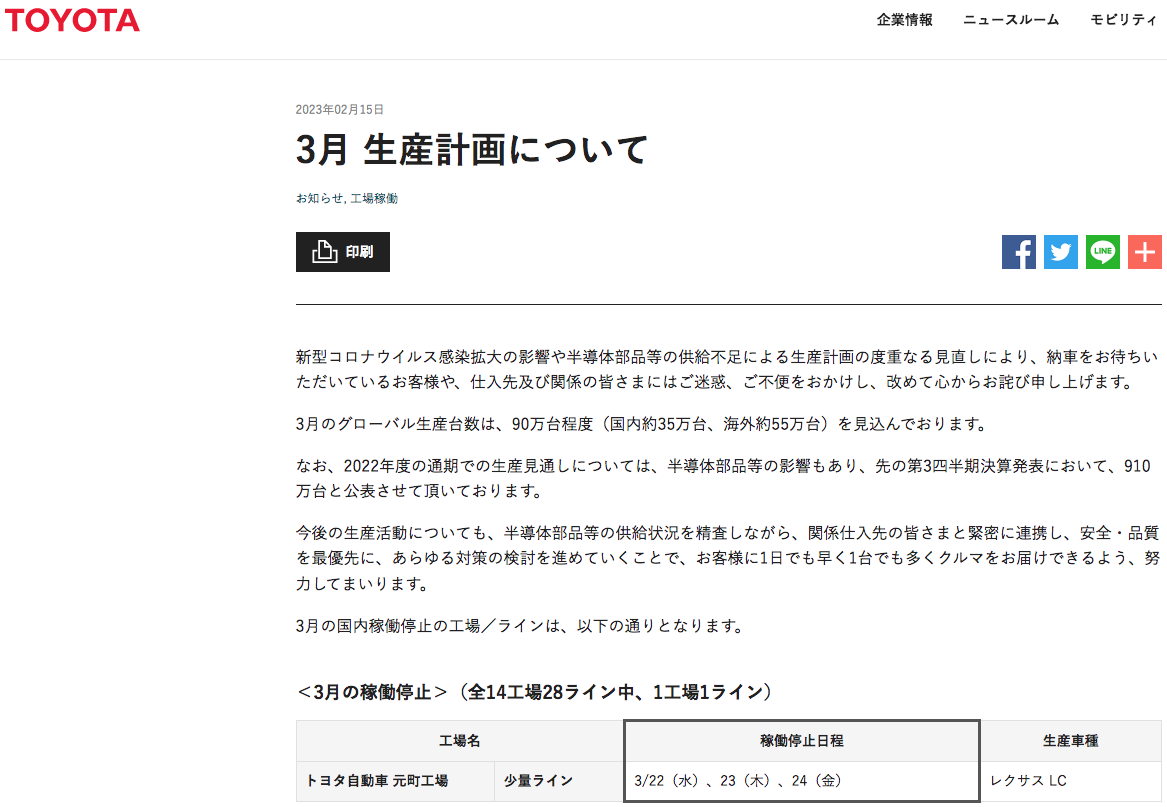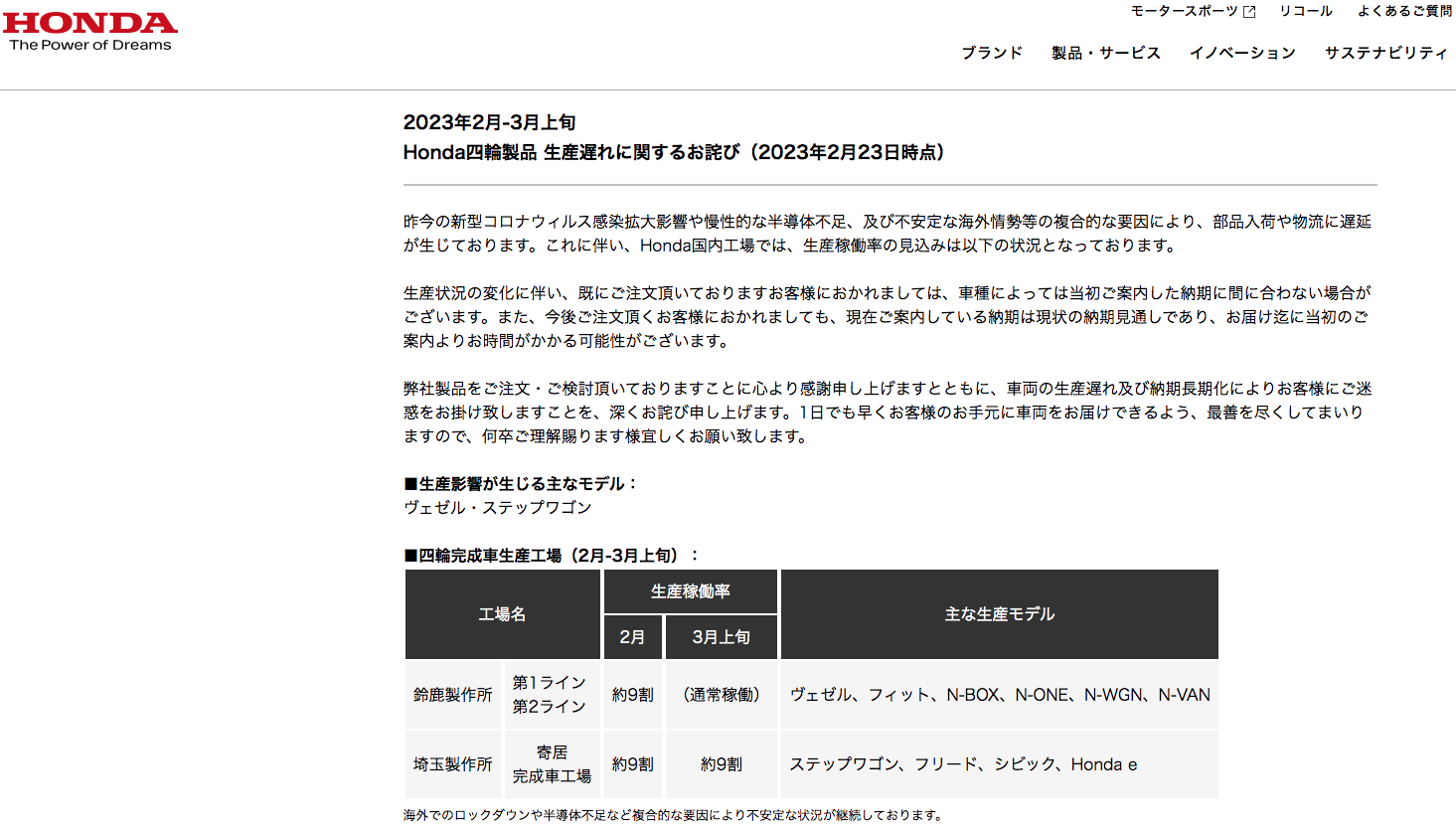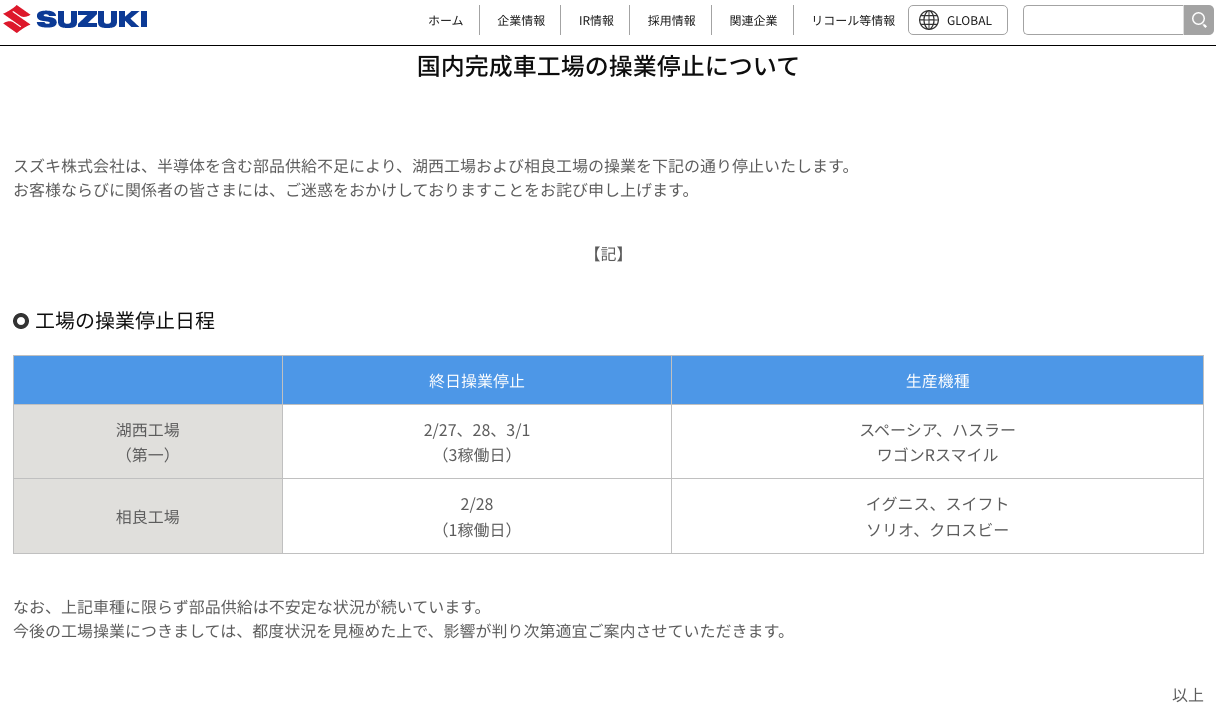In addition to Weibo, there is also WeChat
Please pay attention

WeChat public account
AutoBeta


2024-11-24 Update From: AutoBeta autobeta NAV: AutoBeta > News >
Share
AutoBeta(AutoBeta.net)02/28 Report--
On February 27, Toyota Motor Group released production and sales data for January 2023. Data show that Toyota's global sales fell 5.62% to 709900 vehicles in January 2023 compared with the same period last year, of which domestic sales in Japan increased by 17.99% to 130200 vehicles, while overseas sales fell 9.68% to 579700 vehicles. On the production side, Toyota's global production rose 9.22 per cent year-on-year to 689100 vehicles in January 2023, with production in Japan's domestic market rising 30.09 per cent to 211600 vehicles, the first year-on-year increase in three months, and overseas production up 1.98 per cent to 477500 vehicles.

As for the reasons for the decline in sales, Toyota said it was mainly affected by the COVID-19 epidemic and the tight supply and demand of semiconductors. In terms of production data alone, although Toyota's global production increased in January compared with the same period last year, according to Toyota's previous forecast of global production of 700000 vehicles in January, it still fell short of expectations. Toyota is still plagued by the epidemic and shortage of semiconductors. Toyota said that due to semiconductor shortages and outbreaks, the future situation is still difficult to predict, but Toyota will continue to pay close attention to the supply of parts and components to minimize sudden production declines. At the same time, every effort will be made to deliver as many vehicles as possible to customers as soon as possible.
Toyota announced on its website that due to the shortage of semiconductors and other components, the spread of the COVID-19 epidemic and stagnant logistics, Toyota produced about 900000 vehicles in March, including about 350000 in Japan's domestic market and 550000 in overseas markets. Of the 28 production lines at Toyota's 14 factories in Japan in March, a small number of production lines at the Wonmachi plant in Aichi Prefecture will be suspended for three days from March 22 to 24, with Lexus LC as the affected model.

It should be noted that Toyota is not the only Japanese car company affected by the COVID-19 epidemic and the tight supply and demand of semiconductors.
On February 23, Honda announced on its website that Honda is also facing production cuts due to the local epidemic, a long-term shortage of semiconductors and other components, and stagnant logistics. Honda said two production lines at the Suzuki plant in western Japan, which mainly produces models such as the Feido, Collective and N-BOX, were cut by about 10 per cent in February and were expected to resume normal production in early March, while the plant in Saitama prefecture, north of Tokyo, cut production by about 10 per cent in February and 10 per cent in early March.

Suzuki, another major Japanese car company, is also facing production suspension. Suzuki said its Huxi and Sangliang plants in Shizuoka prefecture will stop production one after another, of which the Huxi plant will stop production from February 27 to March 1. Xiangliang plans to stop production from February 28. It is understood that since June 2022, Suzuki car factory stopped production again after an interval of eight months, and the affected models include Spacia, Hustler and Swift.

Affected by a series of factors such as the epidemic and supply chain disruptions, the production of the top eight Japanese automakers in Japan declined for the fourth year in a row in 2022, with a total production of only 7.38 million vehicles, of which Toyota's production in Japan fell to 2.65 million, down 7.7% from the same period last year. This is also Toyota's second lowest annual output since 1976. However, Japanese automakers said earlier that the problem of supply constraints was expected to ease in 2023. It should be noted that Japanese manufacturers' car production capacity was also directly fed back on new car sales. Data show that new car sales in the Japanese market were 4201321 in 2022, down 5% from 2021 and the lowest level in 45 years.

The global auto market has cut production by about 385000 vehicles this year due to chip shortages, according to the latest data from auto industry data forecasting company AutoForecast Solutions (hereinafter referred to as "AFS"). As for the follow-up chip supply, AFS expects that the global car production reduction is expected to climb to about 2.75 million vehicles by the end of this year, and a number of industry insiders expect the chip shortage to last until the end of 2023 or early 2024.
Welcome to subscribe to the WeChat public account "Automotive Industry Focus" to get the first-hand insider information on the automotive industry and talk about things in the automotive circle. Welcome to break the news! WeChat ID autoWechat
Views: 0
*The comments in the above article only represent the author's personal views and do not represent the views and positions of this website. If you have more insights, please feel free to contribute and share.











© 2024 AutoBeta.Net Tiger Media Company. All rights reserved.